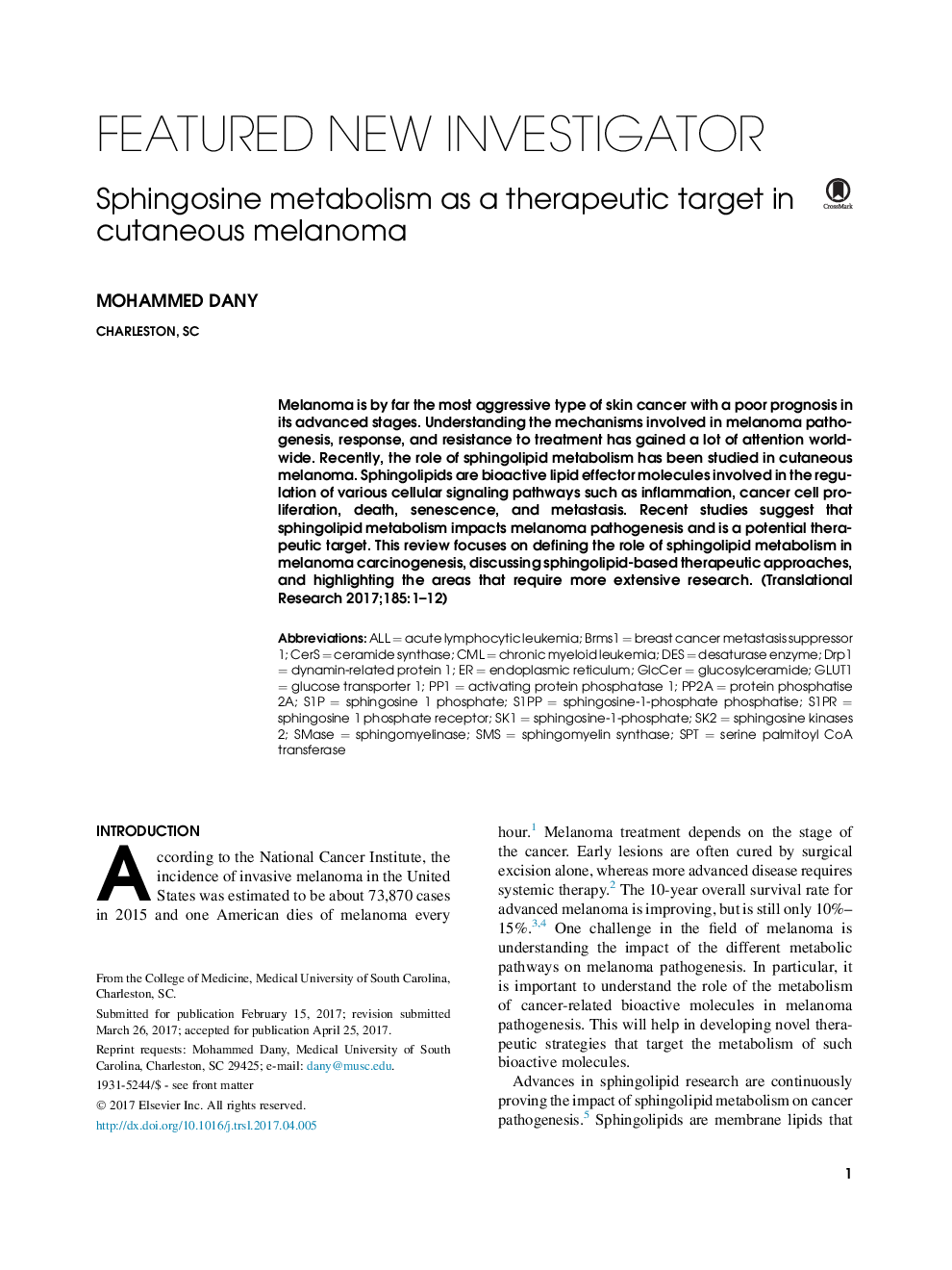| Article ID | Journal | Published Year | Pages | File Type |
|---|---|---|---|---|
| 5685032 | Translational Research | 2017 | 12 Pages |
Melanoma is by far the most aggressive type of skin cancer with a poor prognosis in its advanced stages. Understanding the mechanisms involved in melanoma pathogenesis, response, and resistance to treatment has gained a lot of attention worldwide. Recently, the role of sphingolipid metabolism has been studied in cutaneous melanoma. Sphingolipids are bioactive lipid effector molecules involved in the regulation of various cellular signaling pathways such as inflammation, cancer cell proliferation, death, senescence, and metastasis. Recent studies suggest that sphingolipid metabolism impacts melanoma pathogenesis and is a potential therapeutic target. This review focuses on defining the role of sphingolipid metabolism in melanoma carcinogenesis, discussing sphingolipid-based therapeutic approaches, and highlighting the areas that require more extensive research.
